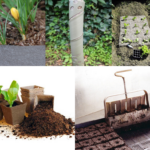We use cookies to make your experience better. To comply with the new e-Privacy directive, we need to ask for your consent to set the cookies. Learn more.
Plastic Free July
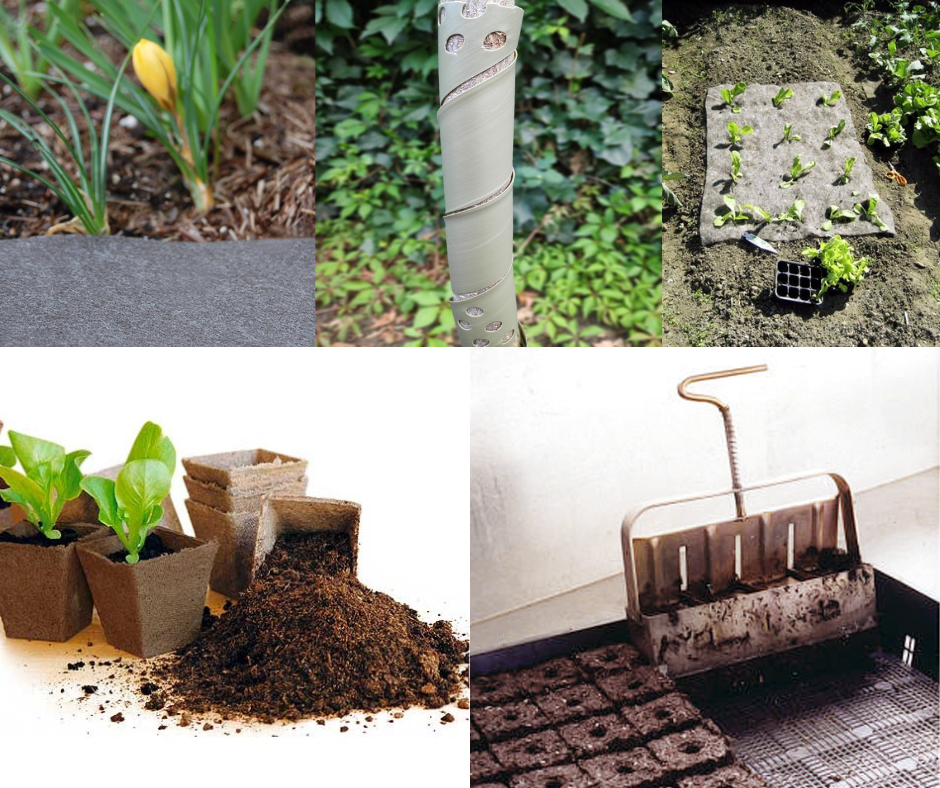
Plastic Free July - Minimising Plastic in the Garden
Plastic has undoubtedly been a valuable resource in the garden, offering convenience and durability. However, its widespread use comes at a significant cost to the environment and wildlife. By exploring and embracing plastic-free options, we can strike a balance between our gardening needs and the well-being of the planet.
Since it’s Plastic Free July, we thought we’d highlight some ways you can reduce plastic in the garden and showcase some plastic free alternative products.
Propagation
The first step in your plant's journey and your first opportunity to reduce your plastic use.
- Pots - Plastic free alternatives, like Jiffy pots made from compressed peat, can be planted directly into the soil. So no re-potting which disturbs the roots and can cause transplant shock.
- Soil Blockers - Another great way to start and pot on seedlings using just compost. Check out our blog post to learn how to use them.
- Get creative - Consider making your own seed pots using recyclable materials like newspaper or cardboard. Toilet roll holders and egg cartons can also make great seed modules.
- Create a seed bed - A prepared area of soil where seeds are sown to germinate and grow into seedlings before being transplanted into their final growing location.
- Labelling - Wooden plant labels can easily be re-used and then composted at the end of their use.
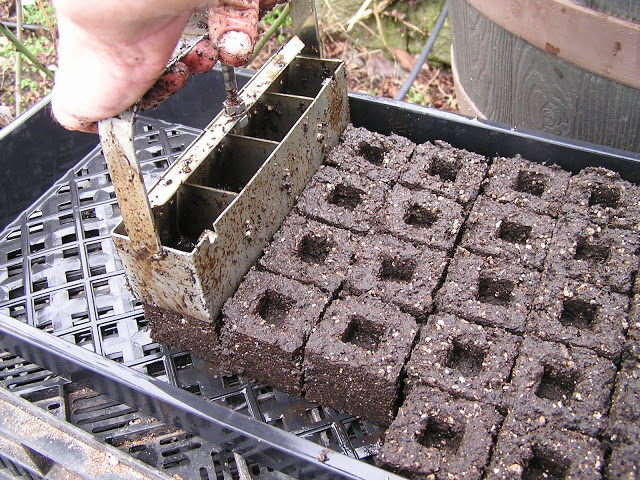
Mulching and Weed Control:
Mulching is essential for conserving moisture, suppressing weeds, and promoting healthy plant growth. It’s also an area where large amounts of plastics often get used.
Instead of plastic mulch films, opt for alternatives such as Strulch, wood chips, leaves, or grass clippings. These materials provide natural insulation, improve soil health, and gradually break down enriching the soil with organic matter.
You can also consider using biodegradable wool weed mats, paper mulch or plant based ground cover to suppress weeds. These options can also be planted into on large or small beds. For areas around fruit bushes or trees you can mulch with cardboard or natural mulch discs, we stock jute and wood fibre varieties.
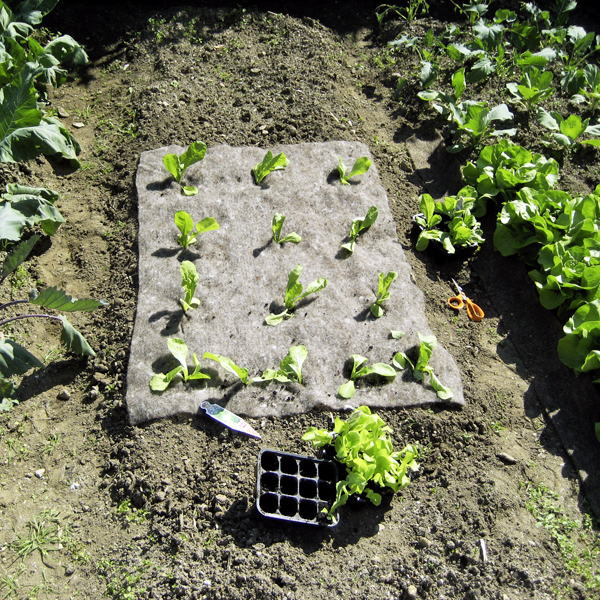
Watering & Irrigation:
It’s hard to avoid using plastic with irrigation however you can ensure that you use high quality products.
Our GEKA hoses are strong and designed to last, with a guarantee of 10-15 years. We also stock sturdy metal Push-fit connections. They are also compatible with other customary push fit systems so you can change your fittings from plastic to metal as you go rather than overhauling your whole setup in one go.
Plant Support & Protection
Polypropylene and other similar plastic twines break down over time in the sun, shedding microplastics right by your veggies.
Instead you can use natural materials like jute or flax, these materials are biodegradable, ensuring a minimal ecological impact. We stock a Jute pea & bean support and a variety of different natural twines. Another great thing about natural twine is that it's less likely to cut into plants as the stems grow.
For tomatoes, cucumbers and other delicate crops you can combine natural twine with biodegradable clips. They work just as well as the plastic and when they reach the end of their life you can dispose of them with peace of mind.
We now also stock a plastic free spiral tree guard alternative, for young trees and saplings.
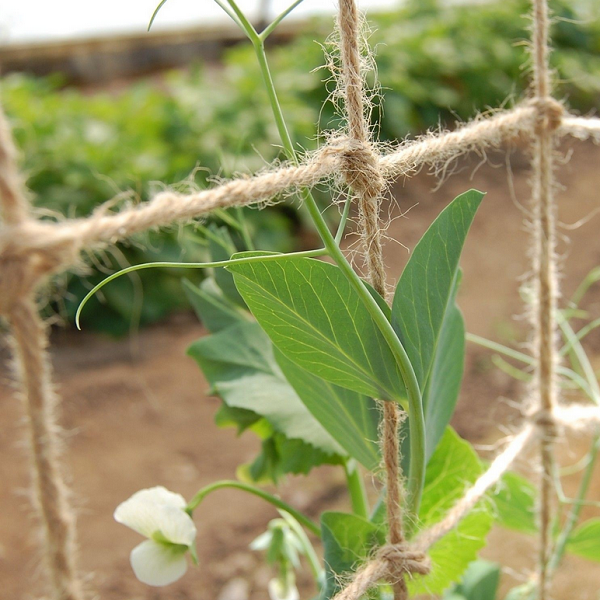
Garden Tools
If you can, always select high quality garden tools - designed to last.
Choose garden tools with wooden handles instead of plastic. Wooden handles are more sustainable and can generally be replaced if they break or wear out, providing a more environmentally friendly option. We supply spare handles for the majority of our tools, ensuring that you can easily replace them and continue using your favourite garden equipment for years to come.
What about the plastic you already have or can’t avoid?
Continue to reuse plastic pots, trays, and other equipment until they reach the end of their useful life to keep them out of the waste system as long as possible. By reusing them, you contribute to reducing plastic waste and promoting sustainability in gardening practices. After they have served their purpose, make sure to clean them thoroughly and bring them to your local recycling centre for proper disposal and recycling.
You can also prolong the lifespan of plant pots by keeping them out of the sun when not in use. Exposure to prolonged sunlight can cause plastic to degrade more quickly.
We are always looking for more plastic alternatives, as well as suppliers who use recycled and more easily recyclable materials. We can all do our part this Plastic Free July to reduce our use.

